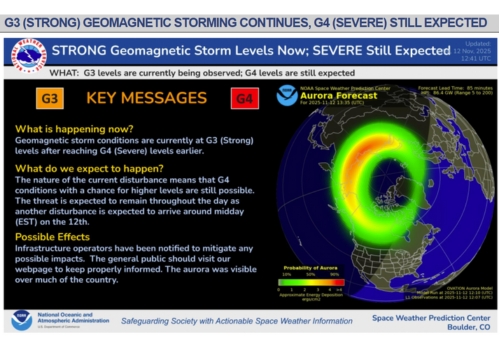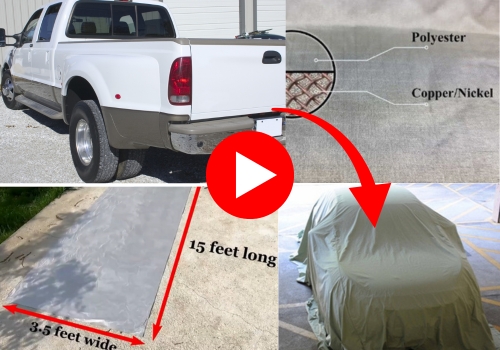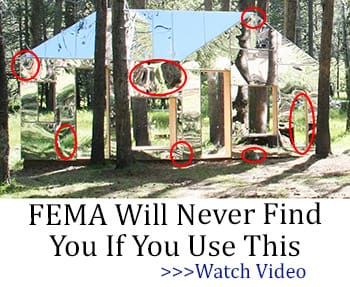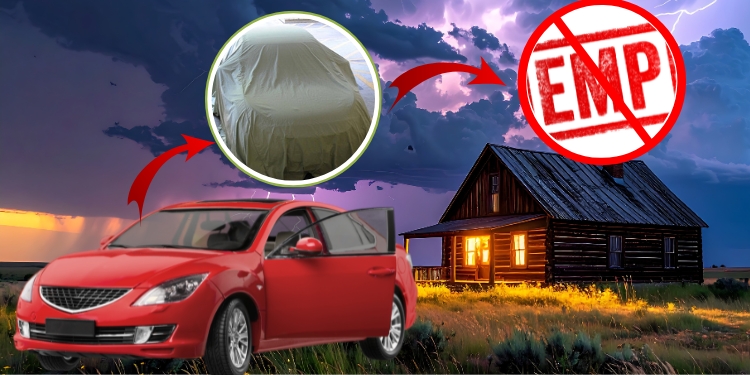There is a lot of debate online about whether or not an EMP will affect a modern vehicle. We have already talked about how to choose an EMP proof car for SHTF and that is to buy a car or truck that was made before the 1980s. These vehicles will have more mechanical systems for the critical engine components, and the electronic systems that they do have will either not be critical for it to function or be easy to replace if an EMP fries them.
Of course, most of us don’t want to rely on a vintage car for daily driving. But if you’re building a dedicated bug-out vehicle, starting with something old enough to be naturally EMP-resistant is a smart move.
As most of you know, there are several other ways to protect modern vehicles from EMPs. But before we get into those, it helps to understand how recent solar storms have affected modern technology and how powerful the next one could be.
What the Latest Solar Storm Could Teach Us About EMPs
In November 2025, a powerful solar storm hit Earth, sending bursts of electromagnetic energy that disrupted radios and GPS signals across Europe and Africa. That flare was accompanied by a fast coronal mass ejection (CME) hurtling toward Earth; and when it arrived, it triggered a strong radio blackout over parts of Europe and Africa. The consequence? High‑frequency communications suddenly went silent or badly degraded, especially on the sunlit side of the planet. The aftermath was subtle but telling: aircraft and maritime HF radio links experienced disturbances, satellite tracking and GPS signals showed anomalies, and auroras lit up the sky much further south than usual. In other words, this wasn’t just a distant space weather headline, but a real empirical “stress‑test” of our technologically‑dependent infrastructure.
The consequence? High‑frequency communications suddenly went silent or badly degraded, especially on the sunlit side of the planet. The aftermath was subtle but telling: aircraft and maritime HF radio links experienced disturbances, satellite tracking and GPS signals showed anomalies, and auroras lit up the sky much further south than usual. In other words, this wasn’t just a distant space weather headline, but a real empirical “stress‑test” of our technologically‑dependent infrastructure.
Why the next one could be worse?
Think of this recent event as a warning shot. It showed that the Sun can send electromagnetic disruptions capable of interfering with communications and navigation. It did not take down your car, but it illustrated how vulnerable the infrastructure around your vehicle is. If a stronger event hit, one of the scenarios would include a full‑scale geomagnetic storm (G4 or G5) that could induce large currents in electrical grids, disable satellites, and create widespread electronics malfunctions.
Realistic Ways to Protect Your Vehicle from EMP
Garage Faraday Cage
 For experienced preppers, the old school garage Faraday cage is the most straightforward way to protect multiple vehicles at once.
For experienced preppers, the old school garage Faraday cage is the most straightforward way to protect multiple vehicles at once.
The goal is a fully enclosed metal barrier with no gaps, so every vehicle and piece of electronics inside is shielded from electromagnetic pulses.
Metal walls, ceiling, and a solid conductive door create a strong protective envelope. Even small openings can compromise protection, so attention to detail is a must.
In this case, doors are always the tricky part. A standard garage door isn’t naturally EMP-proof, so it needs to be fully integrated into the cage. Many preppers use welded metal panels or conductive gaskets to seal edges, ensuring the door can still operate without breaking the protective barrier.
One useful method is grounding, because it adds an extra layer of defense. While a Faraday cage doesn’t require grounding to block EMP energy, a proper ground can help dissipate surges from lightning strikes or nearby electrical faults.
EMP Cloth
Made with woven with fine conductive fibers, usually copper, nickel, or silver, the EMP cloth create a flexible electromagnetic barrier. When wrapped and sealed along the edges, it blocks EMP energy in the same way a Faraday cage does, but without the bulk or rigidity.
The trick is in the application – coverage has to be complete, with no gaps or openings for the pulse to slip through. Even the underside of your vehicle has to be covered for complete protection.
Here’s a VIDEO that shows you how to do it in an effective way:

EMP Shield
There is a product called EMP Shield that you can install in a vehicle, and this will help to protect it from an EMP without resorting to building Faraday cages. Here’s what it means in plain terms:
- What it is: A small, hardwired surge-protection device that installs directly into your vehicle’s electrical system (or your home’s power system).
- What it does: It’s designed to divert or absorb sudden electrical surges caused by an EMP or solar event before they can fry sensitive electronics.
- Why people use it: Unlike a Faraday cage (which physically blocks electromagnetic energy), an EMP Shield connects to your system and acts as a filter or protector. Once installed, it supposedly provides constant passive protection.
Nevertheless, independent verification of these devices is limited, because EMPs are extremely hard to simulate outside of military testing, so most civilian products rely on surge and transient voltage testing as a proxy.
The Best Way to Protect Your Vehicle from an EMP Is…
The EMP Cloth. But instead of lining your garage, you can create a portable EMP shield for your vehicle by sewing together a car cover out of EMP cloth. The advantage is clear: you can throw it over your car whenever you need it, and it works even for vehicles parked outdoors.
To start, you can buy an EMP cloth here, then gather a sewing machine and some basic sewing skills to get started on creating your protective car cover. One of the easiest approaches is to take an existing car cover and attach EMP cloth to the outside.
Make sure to overlap all seams so there are no gaps in coverage. The original car cover acts as an extra layer of insulation between the vehicle and the conductive material, while the EMP cloth provides the actual electromagnetic protection.
If you want to make a cover entirely from scratch, you’ll need to measure your vehicle carefully, cut the EMP cloth to size, and sew panels together to fully cover the car. The downside is that this procedure is time-consuming and requires patience.
So, if your car is not an SUV or other larger model, it’s more convenient to use this military-approved EMP cloth. Simply overlap two or three sheets with duct tape, and your vehicle will be fully covered and protected.
 Here’s why this EMP cloth must be on your checklist:
Here’s why this EMP cloth must be on your checklist:
- Large, Ready-to-Use Sheets: At 15 feet long by 3.5 feet wide, the cloth is big enough to cover a standard car or a full-size home generator, reducing the need to piece together multiple panels.
- Military-Grade Reliability: Developed after years of research by top U.S. scientists, it provides 98% protection against electromagnetic waves, giving you confidence in its effectiveness.
- Conductive Fiber Reinforcement: Woven with copper, nickel, or silver fibers, the cloth creates a consistent electromagnetic barrier across the entire surface while remaining flexible.
- Flexible and Easy to Work With: Lightweight and pliable, it’s simple to cut, sew, or attach to existing car covers or other equipment without compromising protection.
- Privacy and Signal Protection: Beyond EMP protection, the cloth blocks Wi-Fi, Bluetooth, GPS, and RF signals, perfect for keeping mobile devices untrackable when wrapped inside.
Final Thoughts
As the next solar storm or electromagnetic event could have serious impacts, having reliable protection in place can give you peace of mind and help maintain your mobility when it matters most. All the methods we’ve covered can provide meaningful protection against an EMP, and each has its place depending on your situation and resources.
However, the EMP cloth stands out as the most flexible and practical solution. It’s proven to block electromagnetic pulses, adaptable for vehicles, generators, and electronics, and portable enough to deploy whenever and wherever you need it.
You may also like:
 EMP Myths You Need To Stop Believing Before It’s Too Late
EMP Myths You Need To Stop Believing Before It’s Too Late
The CIA-approved Kit Preppers Swear By (VIDEO)
EMP Prevention Plan: Why Our Government Has Done Nothing
What Would an EMP Do to the Human Body?
Read This Before Stockpiling Your Fuel!
Read the full article here



